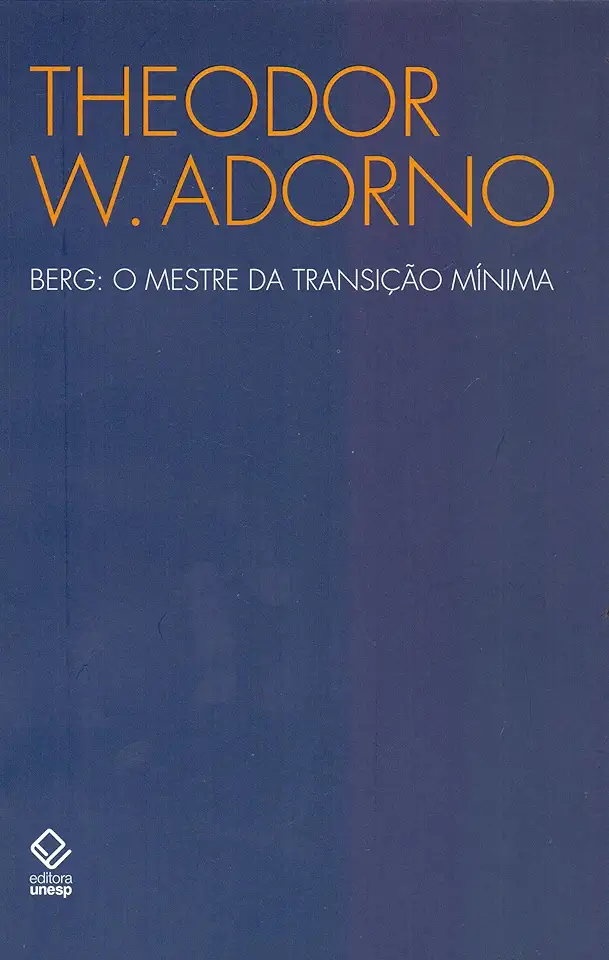
Berg - The Master of the Smallest Transition - Theodor W. Adorno
Berg - The Master of the Smallest Transition - Theodor W. Adorno
A Masterpiece of Modernist Literature
Theodor W. Adorno's Berg - The Master of the Smallest Transition is a seminal work of modernist literature that delves into the life and music of the Austrian composer Alban Berg. Adorno, a renowned philosopher and music theorist, offers a profound and insightful analysis of Berg's music, exploring its innovative techniques, complex structures, and emotional depth. This book is a must-read for anyone interested in modern music, musicology, or the intersection of art and philosophy.
Adorno's Unique Perspective
Adorno's approach to music analysis is unique and thought-provoking. He combines philosophical insights with detailed musical analysis, creating a rich and multi-layered understanding of Berg's music. Adorno argues that Berg's music is not merely a collection of notes, but rather a complex web of relationships and meanings that reflect the composer's own personal and philosophical journey.
Berg's Innovative Techniques
Berg was a master of musical innovation, and Adorno meticulously examines his use of atonality, serialism, and other avant-garde techniques. Adorno explains how Berg's music challenges traditional notions of harmony and melody, creating a sense of tension and unease that reflects the complexities of modern life.
Emotional Depth and Expression
Despite its technical complexity, Berg's music is also deeply emotional and expressive. Adorno explores how Berg's music conveys a wide range of emotions, from despair and anxiety to moments of transcendence and beauty. Adorno argues that Berg's music is not simply a reflection of personal emotions, but also a commentary on the human condition and the search for meaning in a chaotic world.
A Comprehensive Analysis
Berg - The Master of the Smallest Transition is a comprehensive and thorough analysis of Berg's music. Adorno examines Berg's major works, including Wozzeck, Lulu, and the Violin Concerto, providing detailed insights into their musical structures, thematic development, and emotional impact. Adorno also discusses Berg's relationship with other composers, such as Arnold Schoenberg and Anton Webern, and his influence on subsequent generations of musicians.
A Must-Read for Music Lovers
Berg - The Master of the Smallest Transition is a must-read for anyone interested in modern music, musicology, or the intersection of art and philosophy. Adorno's profound insights and unique perspective make this book an essential addition to any music lover's library.
Conclusion
Theodor W. Adorno's Berg - The Master of the Smallest Transition is a masterpiece of modernist literature that offers a profound and insightful analysis of Alban Berg's music. Adorno's unique approach combines philosophical insights with detailed musical analysis, creating a rich and multi-layered understanding of Berg's innovative techniques, emotional depth, and influence on modern music. This book is a must-read for anyone interested in exploring the complexities and beauty of modern music.
Enjoyed the summary? Discover all the details and take your reading to the next level — [click here to view the book on Amazon!]